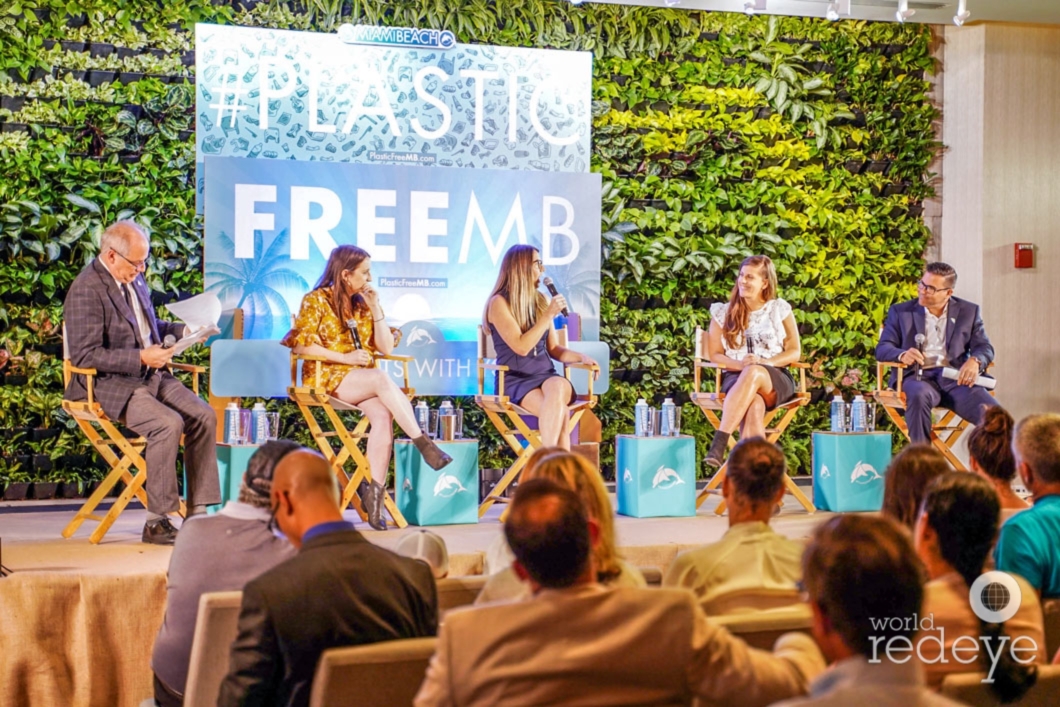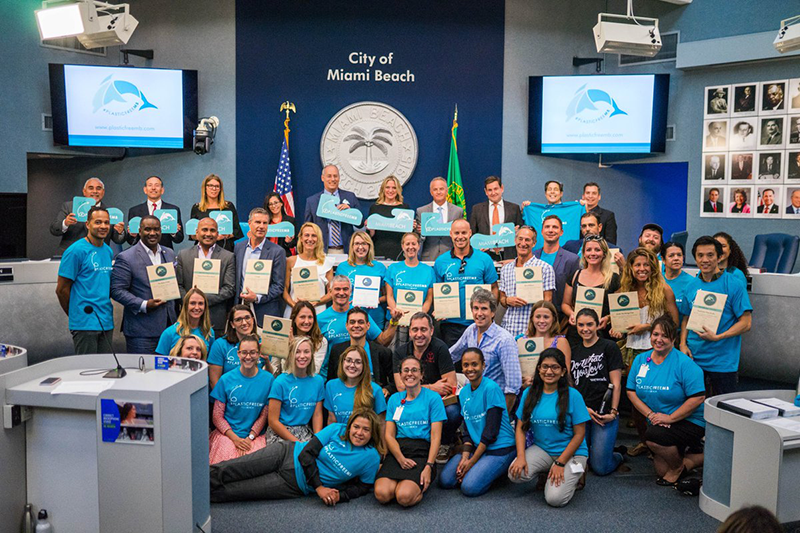Written by: Natalia Brown
Throughout their noxious life cycle, petrochemical products used to make household plastics inflict persistent harms on human health and the environment. It’s becoming very clear that we need to break free from plastic, so what’s stopping us?
“Research shows that knowledge isn’t the only thing that will change behavior. You usually need much more,” according to Caitie Nigrelli, an environmental social scientist at Illinois-Indiana Sea Grant.
Plastics are nearly impossible to avoid, so for those of us strapped for time or cash plastic-free living can easily seem unrealistic. That’s one of the main motivations behind Debris Free Oceans’ Sustainability Consultation program! Individuals, groups, and businesses at all levels need effective and accessible alternatives to successfully phase-out a material that is so embedded in our lives. DFO provides consultation services, free of cost, to facilitate local businesses’ transition away from single-use plastics and towards more sustainable alternatives.
The program was initially developed as a means to assist businesses because, just as the responsibility for addressing this crisis does not all fall on consumers, many small businesses lack the capacity to align their purchasing policies with their values. DFO’s sustainable business consultations are individually tailored to make that connection a reality! In turn, businesses are equipped to contribute to the health and well-being of their communities into their long and fruitful future.
While businesses may reach out to DFO when seeking consultation services, our team often initiates contact with the leadership teams of local ventures that would benefit from this program. Buyers with the ability to use their purchasing power are seeking out more plastic-free alternatives by the day, and businesses need to be ready to play their part!
According to a recent survey of consumers from the US & UK by Globalwebindex:
- More than half of the participants said they’ve started making a conscious choice to use less disposable plastic in the last year.
- 42% of consumers said that recycled and/or sustainable packaging materials are important in their day-to-day shopping.
- In only seven years, the percentage of consumers who are willing to pay more for these alternatives has grown from 47 to 59%.
That said, avoiding plastics is no easy feat for buyers or businesses. There are a host of distracting and misleading products promoted as alternatives. In reality, many of these “greenwashed” materials are still contributing to economic, social, and environmental damages. Ethical small businesses often have the right intentions of creating positive social impact, but are forced to dodge the misinformation that’s out in the markets.
“It’s basically when organizations succumb to the temptation to present a different image from what’s really there,” according to Renee Lertzman, Ph.D., Project Inside Out founder and a psychologist who specializes in the mental toll of climate change. “It’s a particular image or facade that purports to be in alignment with sustainability and climate issues—but it’s not the real deal.”
DFO is proud to play a role in making compostable and reusable products more easily accessible through our virtual tools and one-on-one consultations. Be sure to check out the “Sustainable Business” drop-down menu to browse some of our suggested responsible products, submit your favorite plastic free-alternatives, and plug n’ chug metrics for a quick calculation of how much you could save by swapping reusables for plastics.
At the end of the day, the economic burdens associated with phasing-out plastics should not fall on any one small business or organization. In order for alternatives to truly be more accessible, we need systemic change. DFO targets businesses that are more likely to need cost-free consultation services in order to make the switch, and our work isn’t possible without the support of city and county governments.
“Business practices closely intersect with standards set by law and policy, which is ultimately a reflection of society’s shared values.” – Caiti Waks, Co-Founder and Director of Debris Free Oceans
The public sector (including different levels of government and policy-making bodies) plays an important role in making sustainable business practices more accessible. DFO’s team is proud to be working alongside the City of Miami Beach as they pave the way for municipalities to play an active role in this transition through their #PlasticFreeMB initiative!

The City of Miami Beach kicked off #PlasticFreeMB with an event for attending businesses and entrepreneurs to learn about taking steps towards sustainability within their business operations. Pictured: Mayor Dan Gelber, Hannah Bronfman, Eddie Segev, Caiti Waks, and Kristen Hartburg. Source: worldredeye.
In 2019, the DFO team worked with the City of Miami Beach to launch the #PlasticFreeMB Program, which recognizes businesses as they voluntarily progress along a spectrum of plastic-free practices:
- Level 1 Businesses, such as Surfcomber Hotel or Buenos Aires Bakery & Cafe, have phased out plastic straws or plastic bags.
- Level 2 Businesses, such as Ben & Jerry’s or David’s Café Cafecito, have phased out plastic straws, plastic bags, and one of the following eligible items.
- Level 3 Businesses, such as Biscayne Cowboys or the Miami Beach Convention Center, have eliminated all single-use plastic utensils, stirrers, straws, take-out containers, coffee cups, lids, and bags and/or switched over to 100% reusable products.
The timeline of developing, implementing, and enforcing local ordinances is often slow to create change, but this voluntary business recognition program has already created a ripple of positive impact through the promotion of sustainable business practices. In addition to promotional support and access to interactive consultation resources, the #PlasticFreeMB Program includes a unique educational component in which DFO will be working with schools to reach at least three hundred students and leading three community workshops for adults and businesses to learn more about their role in mitigating the plastic pollution crisis. This will be a critical component for the collective shift in purchasing policies and consumer preferences in the City of Miami Beach. We can only truly begin to create change once we achieve a strong shared understanding of the challenges at hand.
Just as each business consultation is unique, so are our partnerships with municipalities. The City of Miami Beach and the DFO team are currently in the process of growing our capacity to extend these working partnerships to more cities and businesses. The City of Miami Beach distributes their #PlasticFreeMB marketing package to cities interested in replicating the program and DFO provides the tools and consultation services to bring the transition to life. During the Summer of 2020, the City of North Bay Village joined in to launch #PlasticFreeNBV!
For more information about our business consultation services, visit our Sustainable Business page. To connect with our team regarding partnerships or the forthcoming Plastic Free Cities initiative, email hello@debrisfreeoceans.org!



